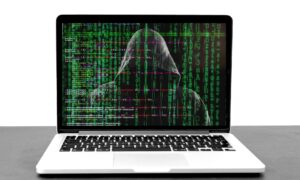FBI Warns iPhone And Android Users—Stop Sending Texts

source: forbes.com (contributed by FAN, Steve Page | image: pexels.com
Republished on December 6 as new cybersecurity regulations are proposed, and with further warnings following the FBI’s encrypted communications push.
Timing is everything. Just as Apple’s adoption of RCS had seemed to signal a return to text messaging versus the unstoppable growth of WhatsApp, then along comes a surprising new hurdle to stop that in its tracks. While messaging Android to Android or iPhone to iPhone is secure, messaging from one to the other is not.
The network cyberattacks, attributed to Salt Typhoon, a group associated with China’s Ministry of Public Security, has generated heightened concern as to the vulnerabilities within critical U.S. communication networks. The reality is different. Without fully end-to-end encrypted messaging and calls, there has always been a potential for content to be intercepted. That’s the entire reason Apple, Google and Meta advise its use, highlighting the fact that even they can’t see content.
According to a senior FBI official, “within the investigative activity, especially one this significant and this large, the facts will evolve over time… The continued investigation into the PRC targeting commercial telecom infrastructure has revealed a broad and significant cyber espionage campaign.” This campaign, he warned, “identified that PRC affiliated cyber actors have compromised networks of multiple telecom companies to enable multiple activities,” confirming that “the FBI began investigating this activity in late spring and early summer of this year.”
The FBI official warned that citizens should be “using a cell phone that automatically receives timely operating system updates, responsibly managed encryption and phishing resistant MFA for email, social media and collaboration tool accounts.”
Now even the FBI and CISA, the U. S. cyber defense agency, are warning Americans to use responsibly encrypted messaging and phone calls where they can. The backdrop is the Chinese hacking of U. S. networks that is reportedly “ongoing and likely larger in scale than previously understood.” Fully encrypted comms is the best defense against this compromise, and Americans are urged to use that wherever possible.
The network cyberattacks, attributed to Salt Typhoon, a group associated with China’s Ministry of Public Security, has generated heightened concern as to the vulnerabilities within critical U.S. communication networks. The reality is different. Without fully end-to-end encrypted messaging and calls, there has always been a potential for content to be intercepted. That’s the entire reason Apple, Google and Meta advise its use, highlighting the fact that even they can’t see content.
According to a senior FBI official, “within the investigative activity, especially one this significant and this large, the facts will evolve over time… The continued investigation into the PRC targeting commercial telecom infrastructure has revealed a broad and significant cyber espionage campaign.” This campaign, he warned, “identified that PRC affiliated cyber actors have compromised networks of multiple telecom companies to enable multiple activities,” confirming that “the FBI began investigating this activity in late spring and early summer of this year.”
The FBI official warned that citizens should be “using a cell phone that automatically receives timely operating system updates, responsibly managed encryption and phishing resistant MFA for email, social media and collaboration tool accounts.”
